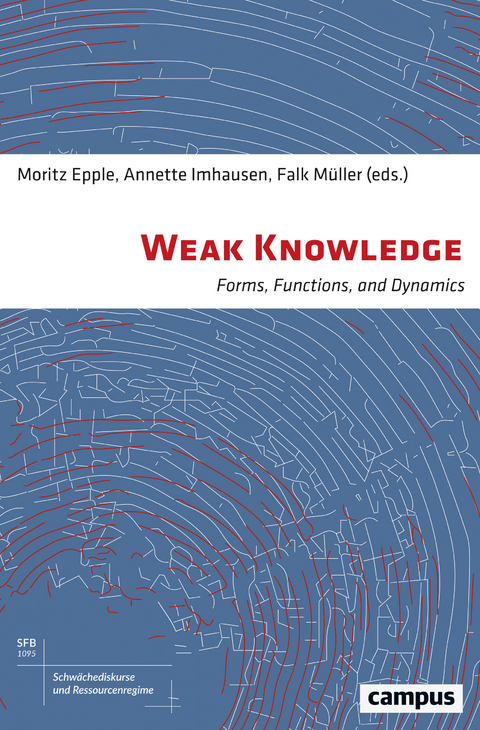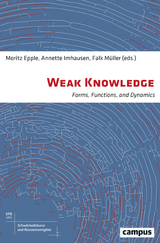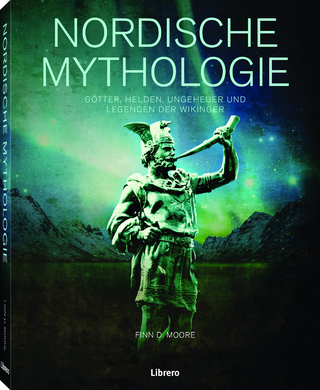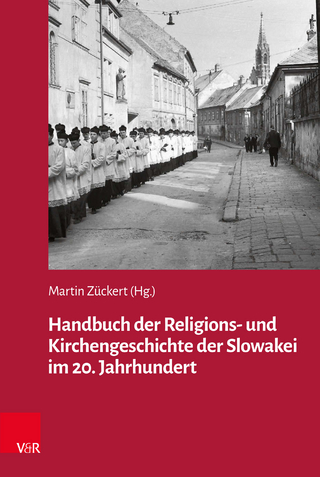Weak Knowledge
Moritz Epple ist Professor für Wissenschaftsgeschichte an der Goethe-Universität Frankfurt am Main.
Annette Imhausen ist Professorin für Wissenschaftsgeschichte der vormodernen Welt am Historischen Seminar der Goethe-Universität Frankfurt am Main.
Falk Müller ist Privatdozent für Wissenschaftsgeschichte am Historischen Seminar der Goethe-Universität Frankfurt am Main.
Contents
Preface .............................................................................................................................. 9
Moritz Epple, Annette Imhausen, and Falk Müller
Schwaches Wissen ........................................................................................................ 13
Hans-Jörg Rheinberger
General Perspectives
The Theaetetus Problem: Some Remarks Concerning
a History of Weak Knowledge ................................................................................... 19
Moritz Epple
Science Research Regimes: From Strength to Weakness
Polycentric Regimes ..................................................................................................... 41
Anne Marcovich and Terry Shinn
Poiesis in Action: Doing without Knowledge ......................................................... 61
Andrew Pickering
Historical Cases
On Certain Uncertainties in Ancient Astrology ...................................................... 85
Daryn Lehoux
A Little Old Lady Told Me: Appropriation of Weak Actors’
Knowledge in Graeco-Roman Pharmacology ....................................................... 109
Laurence Totelin
Metaphysics and the Principles of the Demonstrative Sciences:
Weak and Strong Knowledge in the Late Antique
Commentary Tradition .............................................................................................. 125
Orna Harari
Comment: Weak Knowledge in the History and Philosophy
of Ancient Science: Trajectories of Further Studies ............................................. 143
Annette Imhausen
Failure and Imperfections of Artisanal Knowledge in the
Early Modern Period .................................................................................................. 163
Sven Dupré
On Literary Knowledge: The Conceptual, the Figurative
and the Performative .................................................................................................. 179
Rivka Feldhay
Economy as if: On the Role of Fictions in Economics
in the 1920s .................................................................................................................. 211
Monika Wulz
Weak and Strong Knowledge in Industrial Research:
The Rise of the “Third” Physicist ............................................................................ 231
Falk Müller
Weak Knowledge and the Epic Theatre of Science:
Materials of the Pre-Conference Workshop .......................................................... 263
Nitzana Ben David; Corinna Dziudzia, Martin Herrnstadt;
Lukas Jäger; Natalie Levy, Linda Richter, and Sebastian Riebold
Climate and Environment
A Weaker Form of Knowledge? The Case of
Environmental Knowledge and Regulation ........................................................... 295
Dominique Pestre
Knowledge Production with Climate Models:
On the Power of a “Weak” Type of Knowledge .................................................. 321
Matthias Heymann
Partisanal Knowledge: On Hayek and Heretics
in Climate Science and Discourse ............................................................................ 351
Richard Staley
Medical Knowledge
The Weak and the Strong: Medical Knowledge and
Abolitionist Debates in the Late Eighteenth Century .......................................... 379
Suman Seth
Inflamed Spines and Anarchical Minds:
Dynamics of Medical Testimony on Nervous Shock
in the Late Nineteenth Century England .............................................................. 399
José Brunner
The Power of Weak Knowledge: Modernist Dissonances
in American Medicine ................................................................................................ 419
John Harley Warner
Negotiating Epistemic Hierarchies in Biomedicine:
The Rise of Evidence-Based Medicine ................................................................... 449
Cornelius Borck
Comment: Weak Medical Knowledge ..................................................................... 483
Mitchell G. Ash
Authors ......................................................................................................................... 489
Index ............................................................................................................................. 493
Preface The present volume collects contributions to a conference held in Frankfurt/Main on 2-4 July 2017, contributions which have been re-worked after intense exchanges both during and following the conference. They pursue a common objective: to re-evaluate and challenge historiographical conceptions of the epistemic, social, cultural and practical strength, the robustness, of scientific knowledge. Whether we look at ancient or modern, at metropolitan or peripheral knowledge, whether we consider medical or mathematical knowledge, the empirical material of all but the most superficial studies of an episode in the history of science will reveal that, in its own period, and from the perspective of those involved, the bodies of knowledge involved were often quite different in nature from what textbook epistemology tells us. Justifications of knowledge claims may have been – and often were – found to be lacking, the practical uses of the knowledge in question may have provided formidable obstacles or were entirely missing, the cultural embedding of a given body of knowledge may have been difficult, and/or the social or institutional support for it may have been less than what some actors had hoped for. While this does not come as a surprise for any serious historian of science, the question of what this observation implies for an analysis of scientific knowledge and its historical dynamics has less often been posed. What kinds of deficiencies in knowledge were articulated, when, and by whom? What is the role that such articulations of deficiencies played in the dynamics of knowledge? Were they intended as criticisms of knowledge claims that certain actors hoped to reject, or were they admissions of weaknesses by those producing and defending new bodies of knowledge, intended to help in improving this knowledge? Questions such as these are asked by the contributors to this volume. Taken together, their contributions show that there is a wide variety of possible answers – depending on the particular episodes studied, and on the specific interest that the authors bring to their materials. In times of mounting criticism of scientific research on the part of political actors interested in undermining, or even denying, scientific evidence altogether, at least in certain fields such as climatology or medicine, it is important to clarify what a historical analysis of the weaknesses of knowledge advocated here does strive for, and what it does not. By discussing the wide variety of articulations of perceived weaknesses in scientific knowledge, be they epistemic, social, or practical in nature, this collection certainly does not intend to lend a hand to any form of science denialism. Quite the opposite. We hope to contribute to a better understanding of the fluidity and even fragility of scientific endeavours in the historical situations in which they are undertaken, and of the intellectual and social processes by which they are formed. Even a knowledge fraught with, and aware of, deficiencies of many kinds, may be the best guide to reasonable and responsible action in a complicated world. The contributions in this volume are grouped in four sets. The first three chapters discuss general perspectives on our topic. Moritz Epple begins by outlining a framework for a historical epistemology of weak knowledge. He is followed by an essay in which Anne Marcovich and Terry Shinn sketch their understanding of weaknesses, in what they have proposed to call science research regimes in earlier work. Andy Pickering, in turn, challenges our conceptions of the role – and strength or weakness – of knowledge in action, by offering new reflections on, and examples of, what he has termed dances of agency. These reflections are followed by historical case studies. In the first group, Daryn Lehoux discusses the status of uncertain knowledge in ancient astrology, Laurence Totelin takes a look at the role of weak actors in Graeco-Roman pharmacology, and Orna Harari discusses the attempts of metaphysicians in Late Antiquity to claim the status of an exact science for their field. A comment by Annette Imhausen closes this group. The second group of case studies addresses modern bodies of knowledge that have been considered as weak. Sven Dupré discusses the ways in which “failures” were addressed in early modern artisanal knowledge. Rivka Feldhay offers an analysis of historical knowledge claims in Dostoevesky’s novels and asks how historical knowledge, or experience, in literary writing compares to that of historians. In her chapter on narratives and theories in economics in the 1920s, Monika Wulz discusses another literary tool with a precarious relation to scientific knowledge: the role of fictions. An area of physical knowledge whose status with respect to the established hierarchy of scientific disciplines was – at least initially – perceived as weak is discussed in Falk Müller’s chapter on industrial physics in Germany. This group is closed with a joint contribution by participants of a pre-conference workshop for young scholars exploring the analysis of weak knowledge in yet other fields, including early modern literature and meteorology, recent child psychiatry, and educational sociology, while also taking up general reflections on Chinese “science” and Latourian science studies. In the third set, Dominique Pestre, Matthias Heymann, and Richard Staley address articulations of weaknesses in bodies of knowledge relating to climate and the environment. In their contributions, we can, in particular, follow the motives of such articulations from the inner workings of climate research (as in Heymann’s discussion of computer-based climate modelling) to the political and economic attacks on it (as in Pestre’s look at environmental knowledge and regulation, or in Staley’s account of self-proclaimed “heretics” in climate science).“ The fourth and final set of contributions is devoted to medical knowledge, and thus to another field of knowledge in which claims of inherent weaknesses formed part and parcel of the field’s tradition and were re-negotiated in each historical period. Suman Seth looks at the contested role of medical knowledge in late eighteenth-century abolitionist debates. José Brunner takes us to the courtrooms of Victorian England and the medical discourse on “nervous shock” in the context of railway accidents. John Harley Warner, in turn, analyses the coemergence of a weaker, more personal form of medical knowledge with modern scientific medicine in the USA in the decades around 1900. The latter, and the specific discourses of weakness in the later rise of “evidence-based medicine”, are the subject of Cornelius Borck’s contribution. The four chapters in this set are then commented upon by Mitchell Ash. As readers will find, several threads connect the contributions in this volume. One of these concerns the epistemology of various bodies of knowledge perceived to be weak, across the periods explored. A second is, clearly, the social and political status of such bodies of knowledge, or, in other cases, the social and political status of claims that a certain form of knowledge is weak. Finally, one recurring theme here is the practical relevance of knowledge and the role this plays in perceptions of its strength or weakness. Throughout, we find that an analysis of such perceptions of weakness, and of the discourses in which such perceptions were articulated, provides ample material for historical analysis, an analysis, we hope, that can deepen our understanding of both the significance and the fragility of knowledge in the “mangle of practice” (to borrow Andy Pickering’s term). * The conference upon which this collection is based was funded by Frankfurt’s Collaborative Research Centre (CRC - Sonderforschungsbereich) 1095 Discourses of Weakness and Resource Regimes, in turn funded by the German Science Foundation (DFG). We thank our CRC speaker, Iwo Amelung, and its manager, Mi Anh Duong, for generously supporting the conference. We are grateful for further financial support from Goethe University of Frankfurt/Main and the Vereinigung der Freunde und Förderer der Goethe Universität. Neither the conference nor the research performed in our group would have been possible without the work of our doctoral students, Theresa Dittmer, Nadine Eikelschulte, Lukas Jäger, and Linda Richter. They, and Martin Herrnstadt, at the time working with a Minerva fellowship at the Cohn Institute for the History and Philosophy of Science and Ideas at Tel Aviv University, also made it possible to organise the highly successful pre-conference workshop, bringing together doctoral students and post-docs from Israel and Germany. We are extremely grateful to all organisational support given by our secretaries, Susanne Bernhart and Judith Delombre, student helpers, Leo Kaiser and Nelli Kisser, and our local magician Convin Splettsen (whose magical knowledge is definitely not weak). The manuscript of this volume has been prepared for the press by Chris Engert in Florence, whose careful language editing improved all contributions, and Nelli Kisser, whose diligent work accompanied all stages of the production process from its early beginnings until the final layout. We also need to thank two speakers whose important contributions to the conference could not be included in the present collection, Katharine Anderson and Eleanor Robson. Finally, one of the editors, Moritz Epple, wishes to thank Hans-Jörg Rheinberger for choosing fumaria officinalis as the subject of his first poem, opening this collection. This is a surprising coincidence, involving weak medical knowledge of a very personal relevance. Frankfurt am Main, July 2019 Moritz Epple, Annette Imhausen, and Falk Müller
| Erscheinungsdatum | 12.12.2019 |
|---|---|
| Reihe/Serie | Schwächediskurse und Ressourcenregime | 4 |
| Co-Autor | Mitchell Ash, Cornelius Borck, José Brunner, Sven Dupré, Moritz Epple, Rivka Feldhay, Orna Harari, Matthias Heymann, Annette Imhausen, Daryn Lehoux, Anne Marcovich, Falk Müller, Dominique Pestre, Andy Pickering, Hans-Jörg Rheinberger, Suman Seth, Terry Shinn, Richard Staley, Laurence Totelin, John Harley Warner, Monika Wulz |
| Verlagsort | Frankfurt |
| Sprache | englisch |
| Maße | 163 x 234 mm |
| Gewicht | 828 g |
| Themenwelt | Geisteswissenschaften ► Geschichte ► Allgemeines / Lexika |
| Geisteswissenschaften ► Geschichte ► Geschichtstheorie / Historik | |
| Schlagworte | Naturwissenschaften • Sozialgeschichte • Soziologie • Wissen • Wissenschaftsgeschichte • Wissensgeschichte |
| ISBN-10 | 3-593-50977-6 / 3593509776 |
| ISBN-13 | 978-3-593-50977-8 / 9783593509778 |
| Zustand | Neuware |
| Haben Sie eine Frage zum Produkt? |
aus dem Bereich




